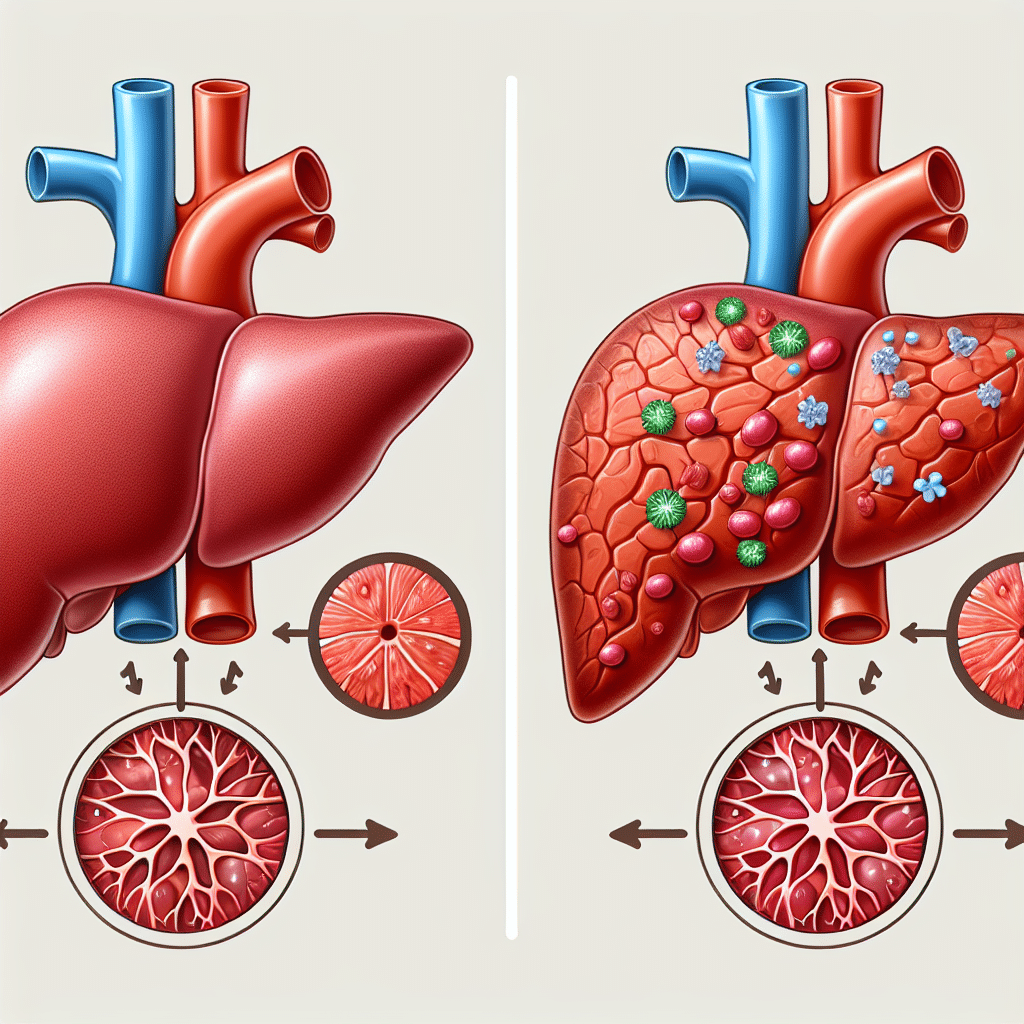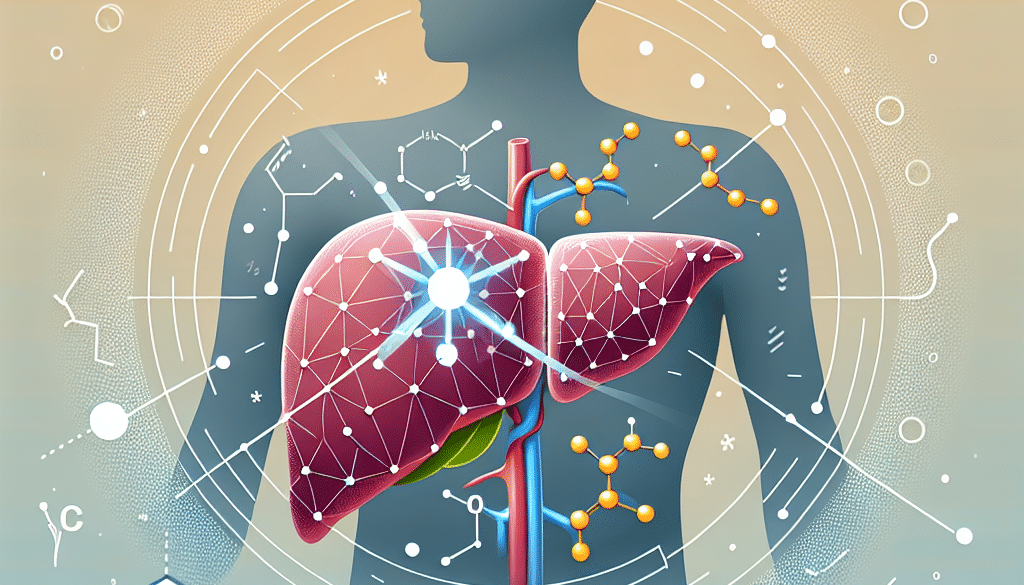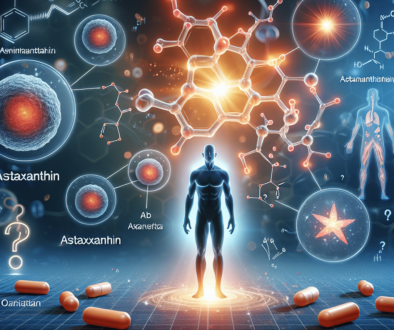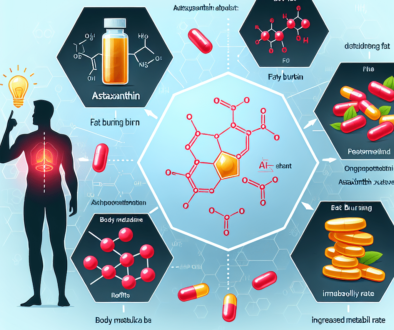How Does Astaxanthin Affect The Liver?
-
Table of Contents
- Astaxanthin and Liver Health: Exploring the Protective Effects
- Understanding Astaxanthin: A Potent Antioxidant
- The Liver’s Battle Against Oxidative Stress
- Research on Astaxanthin’s Liver-Protective Properties
- Case Studies: Astaxanthin in Action
- How Astaxanthin Works to Protect the Liver
- Optimizing Liver Health with Astaxanthin Supplementation
- Conclusion: Astaxanthin as a Liver Health Ally
- Discover ETprotein’s High-Quality Protein Products
Astaxanthin and Liver Health: Exploring the Protective Effects

The liver is a vital organ with a broad range of functions, including detoxification, protein synthesis, and the production of biochemicals necessary for digestion. Given its central role in maintaining overall health, protecting the liver from damage is of paramount importance. Astaxanthin, a naturally occurring carotenoid found in certain algae, fish, and crustaceans, has gained attention for its potential liver-protective effects. This article delves into the science behind how astaxanthin can influence liver health, supported by research findings and statistics.
Understanding Astaxanthin: A Potent Antioxidant
Astaxanthin is a keto-carotenoid known for its powerful antioxidant properties. It is what gives salmon, shrimp, and flamingos their distinctive pink and red hues. Unlike some other antioxidants, astaxanthin can cross the blood-brain and blood-retinal barriers, which allows it to protect both the brain and eyes. Its unique molecular structure makes it particularly effective at neutralizing free radicals and protecting cells from oxidative stress.
The Liver’s Battle Against Oxidative Stress
Oxidative stress occurs when there is an imbalance between the production of free radicals and the body’s ability to counteract their harmful effects with antioxidants. The liver, being a central hub for detoxification, is particularly susceptible to oxidative stress, which can lead to various liver diseases, including hepatitis, fibrosis, and cirrhosis.
Research on Astaxanthin’s Liver-Protective Properties
Several studies have investigated the effects of astaxanthin on liver health. Here are some key findings:
- A study published in the “Marine Drugs” journal found that astaxanthin could reduce liver inflammation and fibrosis in animal models.
- Research in the “Journal of Nutritional Biochemistry” demonstrated that astaxanthin could protect liver cells from oxidative damage and improve liver function.
- A clinical trial indicated that astaxanthin supplementation could reduce markers of liver damage in patients with non-alcoholic fatty liver disease (NAFLD).
These studies suggest that astaxanthin’s antioxidant properties can help mitigate the effects of oxidative stress on the liver, potentially offering a protective benefit.
Case Studies: Astaxanthin in Action
Case studies have provided real-world examples of astaxanthin’s liver-protective effects:
- In a case involving a patient with liver cirrhosis, astaxanthin supplementation was associated with improved liver enzyme levels and overall liver function.
- Another case study reported that astaxanthin helped reduce symptoms and improve quality of life in a patient with chronic hepatitis C.
While these case studies are promising, more extensive clinical trials are needed to fully understand the potential benefits of astaxanthin for liver health.
How Astaxanthin Works to Protect the Liver
The mechanisms by which astaxanthin exerts its liver-protective effects are multifaceted:
- Antioxidant Activity: Astaxanthin neutralizes free radicals, reducing oxidative stress and preventing cellular damage.
- Anti-inflammatory Effects: It modulates the production of inflammatory cytokines, which can contribute to liver disease progression.
- Enhancing Liver Detoxification: Astaxanthin may upregulate enzymes involved in detoxification processes, aiding in the removal of toxins.
These actions combined contribute to astaxanthin’s potential to support liver health and prevent disease.
Optimizing Liver Health with Astaxanthin Supplementation
For those interested in incorporating astaxanthin into their diet, it can be found in foods like wild-caught salmon, trout, krill, and algae. However, the concentrations in food may be insufficient for therapeutic effects, leading many to consider supplements. When choosing an astaxanthin supplement, it’s important to look for high-quality products with proven purity and potency.
Conclusion: Astaxanthin as a Liver Health Ally
In conclusion, astaxanthin shows promise as a natural compound that can support liver health by combating oxidative stress and inflammation. While research is ongoing, current evidence suggests that astaxanthin supplementation could be a valuable addition to liver health regimens. As with any supplement, it’s essential to consult with a healthcare provider before starting astaxanthin, especially for individuals with pre-existing liver conditions or those taking medications.
Discover ETprotein’s High-Quality Protein Products
In addition to exploring the benefits of astaxanthin for liver health, it’s important to consider overall nutrition. ETprotein offers a range of high-quality protein products that can complement a healthy diet. Their organic and non-GMO protein powders, including rice, pea, and seed-based proteins, are excellent for those seeking plant-based nutrition options. ETprotein’s commitment to purity and quality makes their products a trustworthy choice for enhancing your dietary regimen.
About ETprotein:
ETprotein, a reputable protein and L-(+)-Ergothioneine (EGT) Chinese factory manufacturer and supplier, is renowned for producing, stocking, exporting, and delivering the highest quality organic bulk vegan proteins and L-(+)-Ergothioneine. They include Organic rice protein, clear rice protein, pea protein, clear pea protein, watermelon seed protein, pumpkin seed protein, sunflower seed protein, mung bean protein, peanut protein, and L-(+)-Ergothioneine EGT Pharmaceutical grade, L-(+)-Ergothioneine EGT food grade, L-(+)-Ergothioneine EGT cosmetic grade, L-(+)-Ergothioneine EGT reference grade and L-(+)-Ergothioneine EGT standard. Their offerings, characterized by a neutral taste, non-GMO, allergen-free attributes, with L-(+)-Ergothioneine purity over 98%, 99%, cater to a diverse range of industries. They serve nutraceutical, pharmaceutical, cosmeceutical, veterinary, as well as food and beverage finished product distributors, traders, and manufacturers across Europe, USA, Canada, Australia, Thailand, Japan, Korea, Brazil, and Chile, among others.
ETprotein specialization includes exporting and delivering tailor-made protein powder and finished nutritional supplements. Their extensive product range covers sectors like Food and Beverage, Sports Nutrition, Weight Management, Dietary Supplements, Health and Wellness Products, and Infant Formula, ensuring comprehensive solutions to meet all your protein needs.
As a trusted company by leading global food and beverage brands and Fortune 500 companies, ETprotein reinforces China’s reputation in the global arena. For more information or to sample their products, please contact them and email sales(at)ETprotein.com today.











